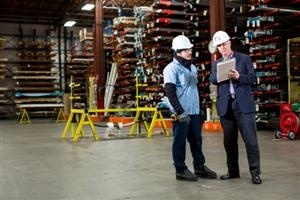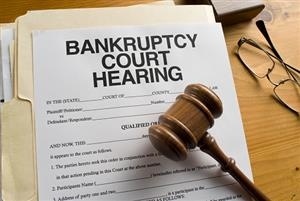
When we've been discussing equipment appraisals in the past, we've discussed a number of ways in which machinery may be appraised. But one type of appraisal we haven't gone into depth with is replacement cost new. Because it's only used in certain circumstances, it's a type of appraisal that many people are still unaware of. Here's a quick rundown of how it's different and a situation where it's commonly used.
How is replacement cost new different than other appraisals?
When you purchase insurance on your machinery, it's important to know what type of insurance you have in place. Replacement cost is a commonly used variety, but will only cover the replacement of the machinery with similar machinery. This can backfire for many equipment owners, especially when the equipment has been customized to their operation, such as an extruder that has been customized to their exact needs. An insurance adjustor may not understand the find differences between the types of equipment, dragging your claim out.
For that reason, many people will insure their equipment for replacement cost new. When a technical company in North Carolina had an office flood, they lost a significant portion of the equipment in their computer lab. The insurance company didn't understand that the equipment had been bought over time from a number of sources to ensure the company could work with the wide range of systems their clients were using. Because they had replacement cost insurance, they had to fight with the insurance company for many months to reach a settlement, as the insurance company didn't understand the current value of those machines to the business.
In another example, a company had a break in where several key pieces of equipment were stolen. Because they had replacement cost new coverage on the equipment, they were able to get compensation that allowed them to replace the stolen machinery with equivalent new machinery. This made it much easier for the shop to get back into working condition without too much lost production. Some of the machinery was much older, so finding the same equipment used would have been very difficult and very time consuming for the business. Because of the coverage they had on the equipment, they could find machinery that met a minimum set of specifications and be reimbursed for the purchase of that machinery by the insurance company. For example, an old bandsaw used in the shop provided resawing capability at 3 HP could have been replaced with a new resawing 3 HP bandsaw.
The difference between these two businesses is fairly clear. Both lost older machinery that was difficult to replace. However, one spent months trying to prove the value of the machinery in their business while the other merely had to shop for new equipment that met the same needs in the business. This had a huge impact on the productivity of the business and the amount of time the company's owners had to spend on growing the business versus chasing the insurance adjuster's latest numbers.
When you need to make an insurance claim or otherwise need to know the replacement cost new of your equipment, it's important to work with a certified machine appraiser who has experience in your industry. Why? It's important that they know why particular features and capabilities are vital to keeping your operation moving. They also have the knowledge of how to calculate this machine value accurately, which is important to your claim or need when you've had an equipment loss.



